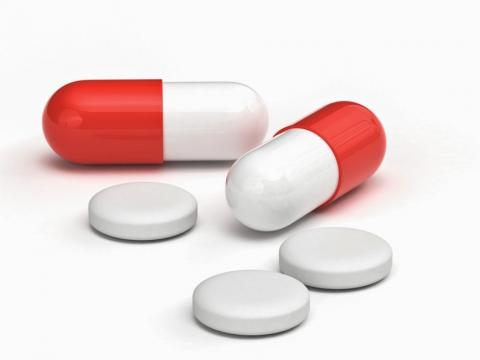The urgency of establishing the African Medicines Agency

HUIHUI WANG, PATRICIO V. MARQUEZ, ALBERT FIGUERAS
SEPTEMBER 20, 2021
The original version of this blog was posted at the World Bank Group Investing in Health site:
https://blogs.worldbank.org/health/urgency-establishing-african-medicines-agency
The Bureau of the African Union Heads of State and Government endorsed in 2019 a new Treaty for the establishment of the African Medicines Agency (AMA) to enhance the capacity of countries to regulate medical products. Now that 15 African Union Member States have ratified the Treaty in recent months, it looks more likely that AMA becomes reality. It will be the second cross-continental African health agency, following the Africa Centers for Disease Control and Prevention (Africa CDC).
The value of AMA, in the context of the COVID-19 pandemic and beyond, is demonstrated by the critical role played by a similar regional body, the European Medicines Agency (EMA). Harmonizing regulatory systems for medical products across Africa will bring many benefits – especially building capacity to monitor the safety and effectiveness of marketed medicines and vaccines.
Harmonizing drug regulations
The European medicines regulatory system is based on a network of around 50 regulatory authorities from the 31 European Economic Area countries, the European Commission and EMA. EMA, established in 1995, operates at the heart of the network, coordinating and supporting interactions between over 50 national competent authorities for both human and veterinary medicines. EMA has also become a major player for European and international harmonization of drug regulations. EMA’s Committee for Medicinal Products for Human Use prepares scientific guidelines in consultation with regulatory authorities in EU Member States, to help applicants prepare marketing authorization applications for human medicines. Guidelines reflect a harmonized approach of the EU Member States and the Agency on how to interpret and apply the requirements for the demonstration of quality, safety and efficacy set out in the Community directives.
In the case of AMA, it could play a similar role as EMA, in coordinating and strengthening ongoing initiatives, such as the African Medicines Regulatory Harmonization initiative, supported by the World Bank since 2011, to harmonize regulations on medical products marketed across Africa, as well as increasing the capacity of national regulatory authorities. AMA is also mandated to coordinate the collection, management, storage, and sharing of information on medical products with countries.
Harmonizing standards to counter fake medicines
By providing advice on the marketing authorization process for priority drugs defined by national authorities and those proposed by pharmaceutical laboratories, AMA would help improve processes for market authorization in countries. Such regional coordination of interests would facilitate greater access to safe, effective, and good quality medical products.
As countries in Africa become more integrated into the global economy, with an increase in movement of goods and services, AMA, by supporting the harmonization of regulations, would assist joint country efforts for the control of a growing cross-border market of unregulated and fake medicines in circulation in the continent. In June 2021, for example, South Africa authorities found around 2,400 doses of illicit coronavirus vaccine hidden in plastic containers in a refrigerator and counterfeit 3M-branded N95 masks. Similarly, falsified COVISHIELD vaccines indicated for active immunization of individuals 18 years or older for the prevention of COVID-19 have been identified and reported to WHO in July and August 2021 at the patient level in Uganda and other countries.
Monitoring the safety and effectiveness of medical products
Another key function to be played by AMA as done by EMA, would be to coordinate and support pharmacovigilance in the continent. In the case of EMA, it operates EudraVigilance, a system for managing and analyzing information on suspected adverse reactions to drugs and biologicals authorized for use in the European Economic Area. Having in place such a system, EMA was able to review early in 2021 reported adverse health events with COVID-19 Vaccine AstraZeneca in some countries, and recommend resuming vaccination as it maintained that the benefits of the AstraZeneca vaccine in preventing COVID-19, with its associated risk of hospitalization and death, outweighed the risks of side effects.
AMA, in playing a similar reassuring role, could help clear up concerns over the safety and effectiveness of drugs marketed in the countries and overcome “a pervasive distrust in pharmacological interventions” among the population that has been sown by a past history of unscrupulous medical research carried out in Africa. For example, AMA, by providing information on the safety of COVID-19 vaccines, could assist country governments to communicate clearly about the benefits of vaccines and address vaccine hesitancy.
Moving forward
The international community could lend their support for the establishment of AMA once the treaty enters in force, as they have done with the Africa CDC. A lot of work will be required to put in place robust organizational, managerial, and oversight arrangements, and in operational matters, staffing issues, drawing up annual work programs and sustainable budgets, and the establishment of scientific committees and expert working groups to support countries.
AMA stands to contribute to the protection and promotion of public health in Africa, as the Africa CDC is now supporting the continent-wide response to the COVID-19 pandemic. In doing so, AMA would contribute to enhance global health security overall.
Acknowledgement: the team appreciates support provided by the Korea-World Bank Partnership Trust Fund for the ongoing work on this topic.
Picture Credit: radiorio--Stock photo ID: 1137951351 (Upload date :March 24, 2019)
